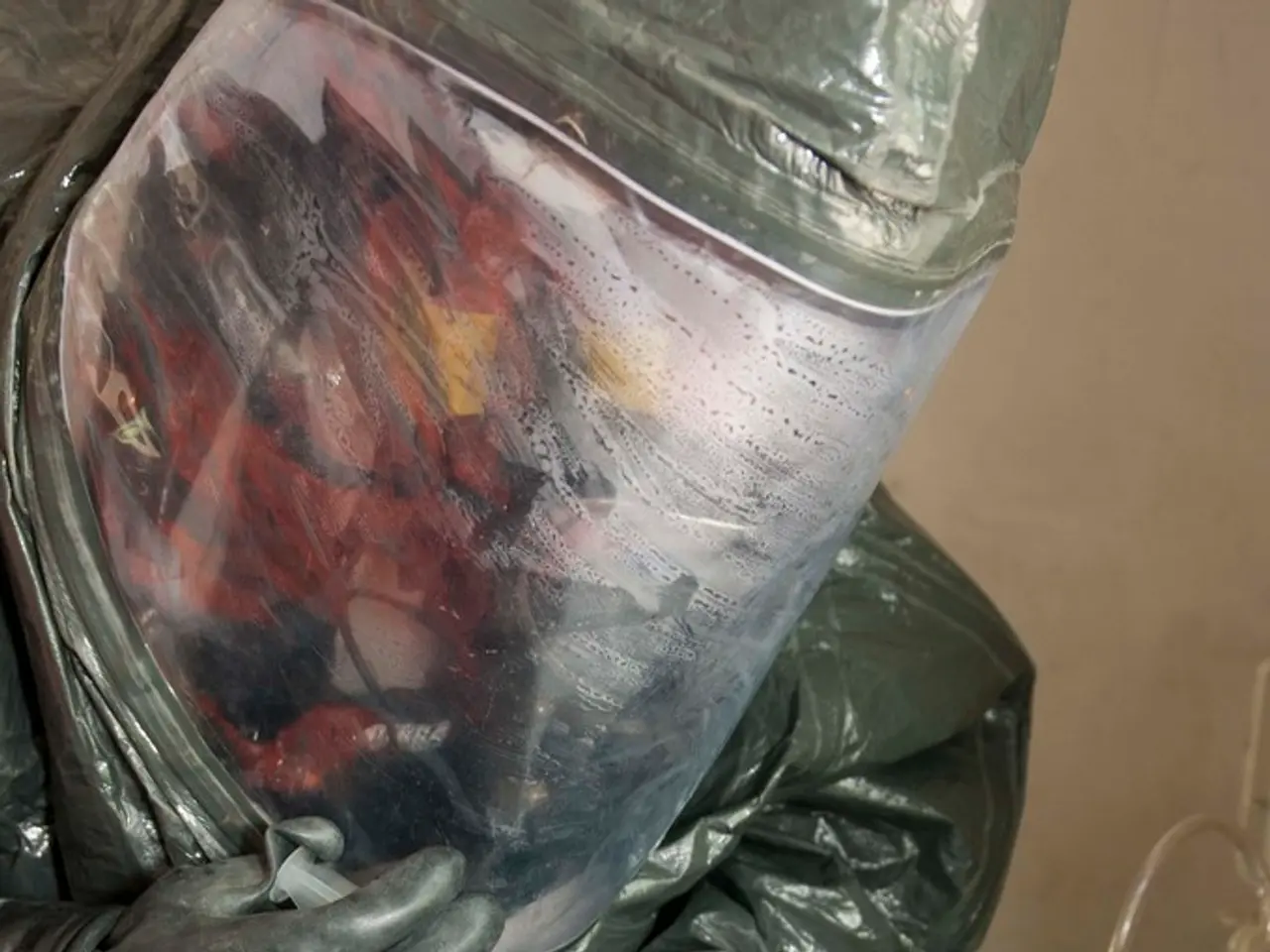UK Witnesses Botulism Outbreak Linked to Botox Procedures - Steps to Ensure Safety if Contemplating Cosmetic Alterations
In the world of beauty treatments, safety should always be a top priority. When it comes to Botox, a popular cosmetic procedure, it's crucial to make informed decisions to ensure your wellbeing. Here's what you need to know about choosing a Botox practitioner in the UK.
Legal Requirements and Qualifications
It is a legal requirement for a patient to undergo a formal, in-person consultation process before receiving any prescriptive product or injectable, such as Botox. A qualified medical practitioner, such as a doctor, nurse, or dentist, with advanced training and extensive experience in facial aesthetics, should administer the treatment.
The Importance of a Cooling-off Period
After your consultation, you should have a 'cooling off' period to digest the information discussed and weigh up whether it's the right step for you. The current guidance suggests a minimum cooling off period of 14 days for both surgical and non-surgical procedures.
Recent Botulism Outbreak
Recent events have highlighted the importance of safety precautions. A botulism outbreak in the East, East Midlands, and the North East regions has seen 38 reported cases of botulism poisoning in the last six weeks. If you have had a recent botulinum toxin (Botox-like) treatment and are having symptoms such as difficulty swallowing or breathing, contact NHS 111 for further advice and seek treatment immediately.
Complications and Emergency Protocol
Complications can arise when Botox is injected incorrectly, in the wrong dose, or by an unlicensed practitioner using counterfeit products. A qualified medical practitioner will be trained to recognise and treat complications, such as blockage of a blood vessel with filler or allergic reactions. Always ask your injector what their protocol is in case of an emergency and whether they stock the relevant emergency medications such as hyaluronidase (the enzyme that dissolves filler) and adrenaline in case of a serious life-threatening allergy.
Choosing a Reputable Practitioner
When choosing a Botox practitioner in the UK, the key safety precautions are to ensure the practitioner is a qualified healthcare professional who has advanced training and extensive experience in facial aesthetics. Reputable practitioners will be transparent about the brand of filler, where it's sourced from, and whether it's had the relevant regulatory approval and has sufficient safety data for its proposed use.
Regulatory Changes
Currently, there is no formal statutory regulation restricting who can perform Botox injections. However, new UK government regulations are forthcoming that will require all Botox practitioners and clinics to meet rigorous safety, training, and insurance standards and obtain a local authority license before they can legally operate.
Additional Safety Considerations
Additional safety considerations include preferring clinics that are medically led and registered with regulatory bodies like the Care Quality Commission (CQC) when possible, as this ensures higher safety and quality standards. Avoid treatments in unsafe environments such as pop-up clinics, private homes, or unlicensed venues where untrained injectors operate.
Age Restrictions
Under upcoming regulations, minors under 18 will be barred from most cosmetic treatments. It's essential to confirm the practitioner is insured, professionally qualified, and can support you before, during, and after treatment with proper aftercare.
In conclusion, the safest choice is to select a practitioner who is medically qualified, properly trained in Botox administration, and operating in a licensed and reputable clinic—a standard expected to become legally enforced soon in the UK to protect patients from harm and poor outcomes.
The UK Health Security Agency (UKHSA) has issued a warning to help raise awareness of the signs and symptoms of botulism. Remember, beauty should never come at the cost of your safety. Always prioritise your health when considering cosmetic treatments.
- A qualified medical professional, like a doctor, nurse, or dentist, should administer Botox treatments due to their advanced training and facial aesthetics experience.
- It's crucial to have a 'cooling off' period of at least 14 days after consultation for non-surgical and surgical procedures.
- Recent botulism poisoning cases remind us of the importance of safety precautions in Botox treatments.
- Complications can occur with incorrectly administered Botox, wrong doses, or treatments from unlicensed practitioners using counterfeit products.
- Qualified medical practitioners are trained to diagnose and handle treatments for complications, such as filler blockage or allergic reactions.
- Ask your practitioner about their emergency protocol and if they carry emergency medications like hyaluronidase and adrenaline.
- Choose a reputable, qualified Botox practitioner in the UK who is transparent about their filler brand, its source, and regulatory approvals.
- New regulations require Botox practitioners and clinics to meet safety, training, and insurance standards before operating.
- Prefer medically led and CQC registered clinics to ensure high safety and quality standards.
- Avoid treatments in unregulated environments, like pop-up clinics, private homes, or unlicensed venues.
- Minors under 18 will be prohibited from most cosmetic treatments under upcoming regulations.
- Ensure your practitioner is insured, professionally qualified, and offers proper aftercare support before, during, and after treatment.
- A safe choice is selecting a medically qualified, trained, and licensed Botox practitioner, a standard that may soon become legally required.
- The UKHSA has issued a warning to help identify botulism symptoms, emphasizing that beauty should never compromise safety.
- Prioritizing health is essential when considering cosmetic treatments in order to avoid any harm or poor outcomes.
- Maintaining cardiovascular health, eye-health, hearing, digestive health, and mental health through nutrition, weight management, fitness, and exercise becomes even more important as cosmetic treatments involve invasive procedures.
- Personal finance and budgeting becomes a factor when seeking out professional, qualified, and safe Botox practitioners in the UK.
- Engaging in sports, such as baseball, hockey, golf, basketball, racing, horse racing, tennis, or mixed martial arts can help improve overall health and well-being, providing a balanced lifestyle alongside cosmetic treatments.




